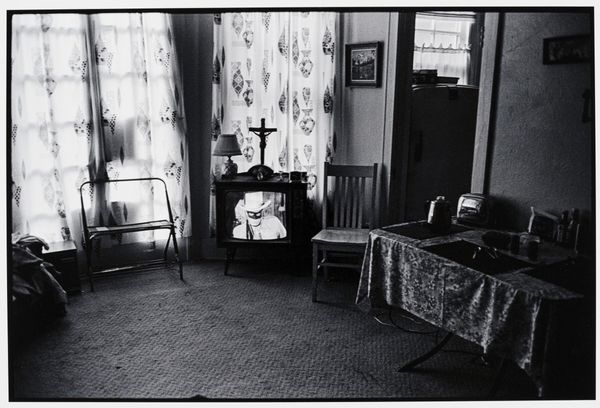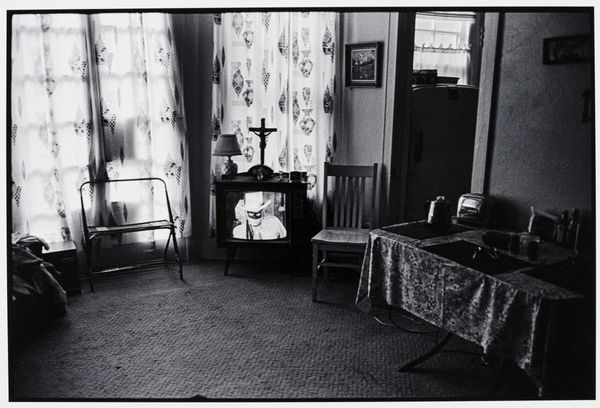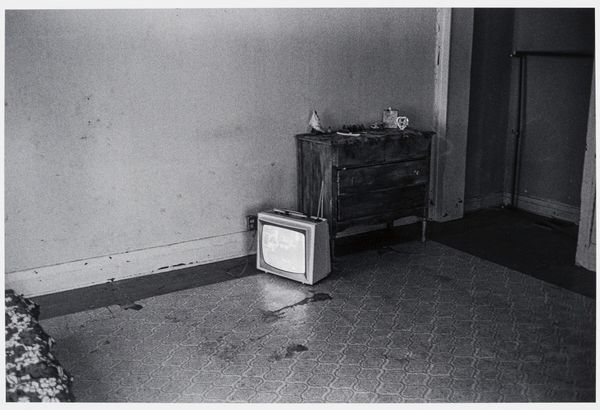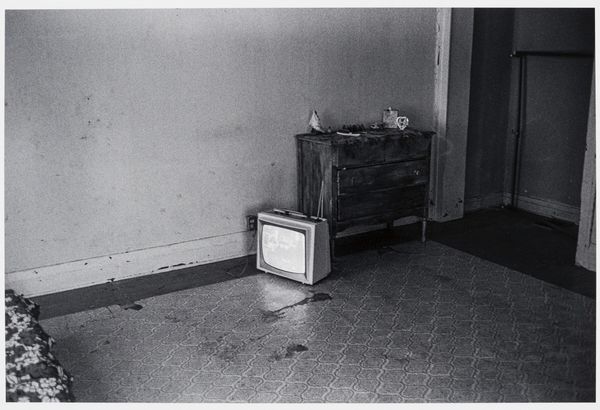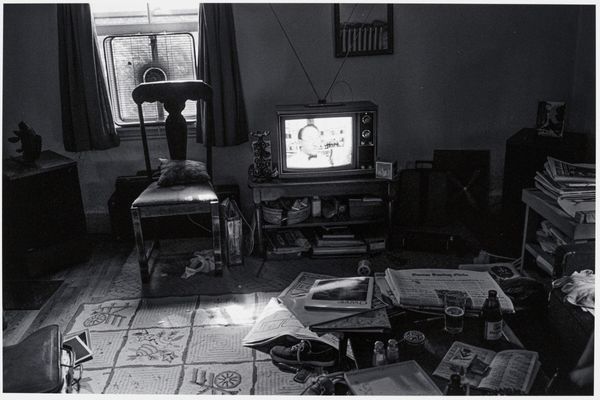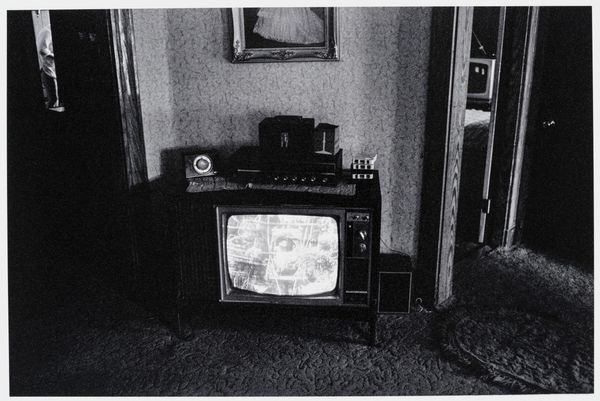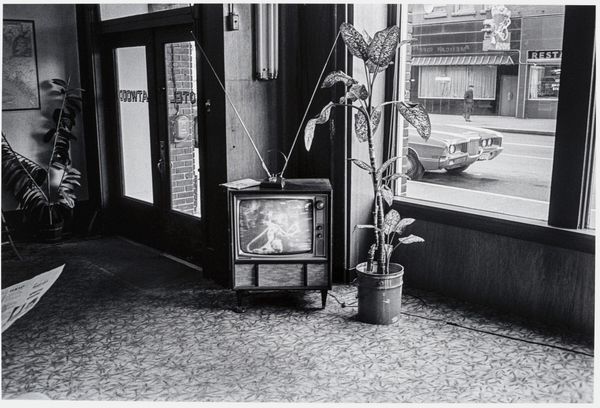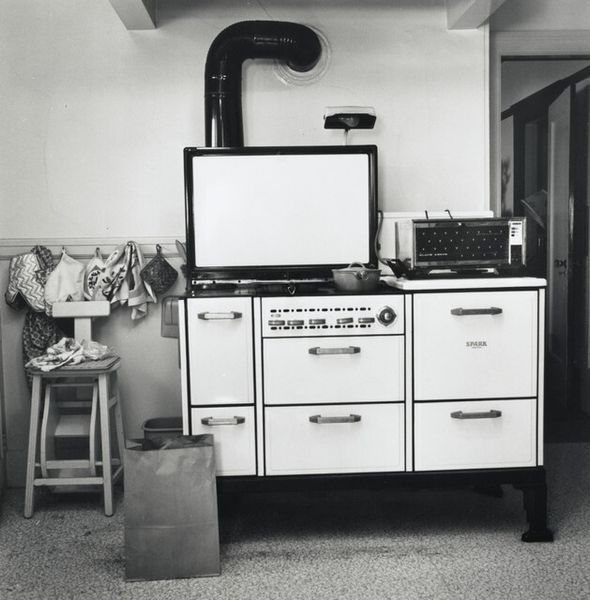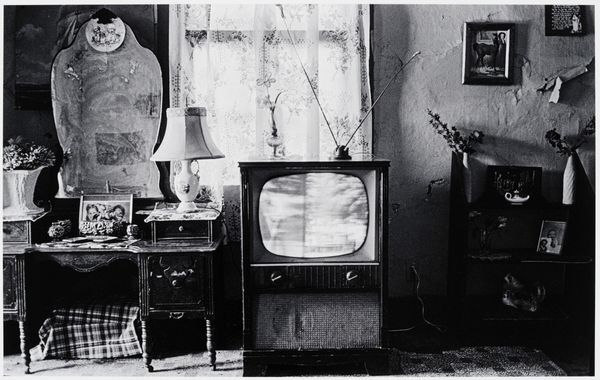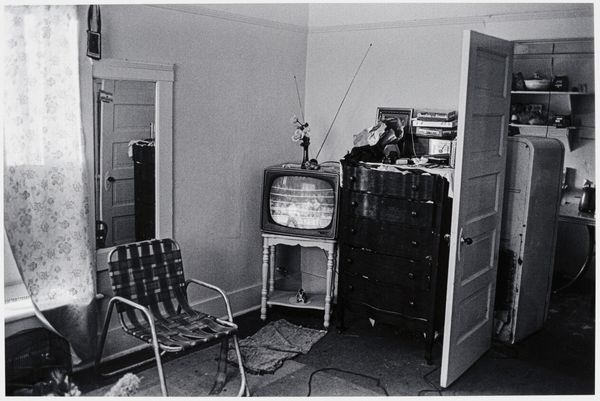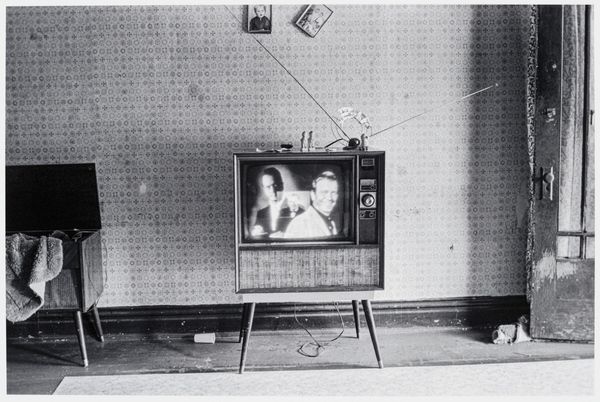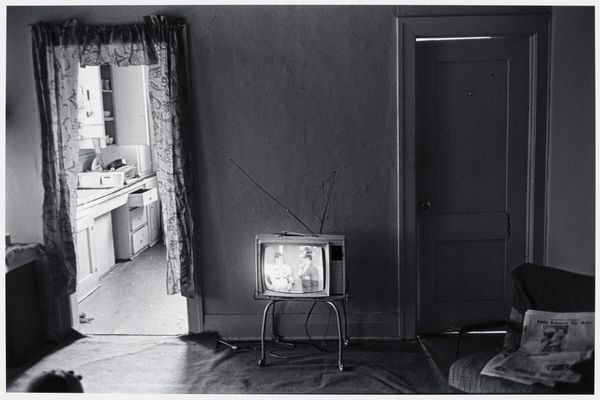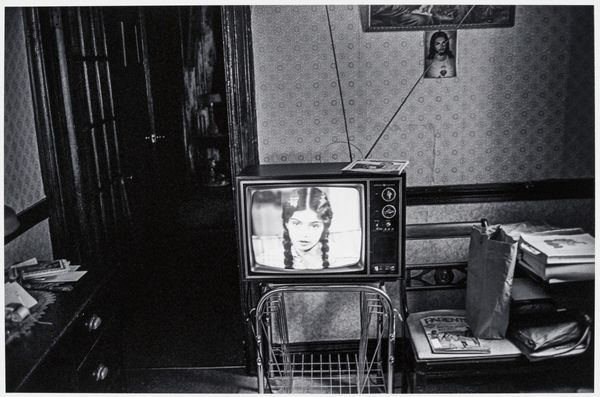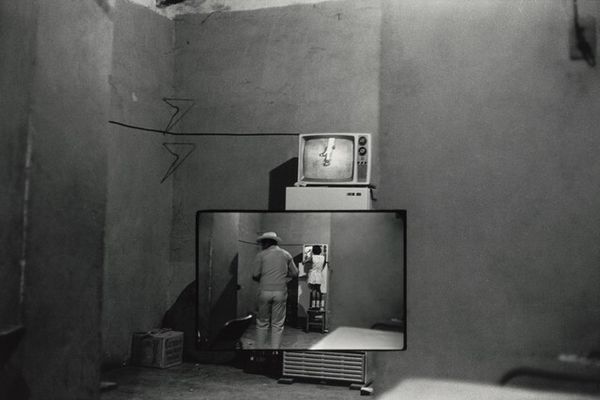
photography, gelatin-silver-print
#
contemporary
#
black and white photography
#
black and white format
#
street-photography
#
photography
#
black and white theme
#
black and white
#
new-york-school
#
gelatin-silver-print
#
monochrome photography
#
monochrome
#
monochrome
Dimensions: image: 25.4 × 24.3 cm (10 × 9 9/16 in.) sheet: 35.3 × 27.9 cm (13 7/8 × 11 in.)
Copyright: National Gallery of Art: CC0 1.0
Walker Evans made this gelatin silver print, Robert Frank's Stove, Nova Scotia, sometime in the middle of the 20th century. Evans's work is associated with documentary photography and the exploration of American social landscapes, especially during the Depression era. Here, the image creates meaning through its stark, unadorned depiction of a utilitarian object: a stove. The peeling paint, worn surfaces, and overall simplicity speak to the hardscrabble existence of rural communities in Nova Scotia. There is, in effect, a deliberate rejection of any idealization or romanticization of rural life. Evans's choice of subject matter, combined with his formal approach, serves as a social commentary on the economic conditions and the everyday lives of ordinary people. Investigating this artwork further might lead us to explore records from the Farm Security Administration, where Evans worked, or the personal papers of Robert Frank. This would give us greater insight into both artists’ interests in documenting vernacular culture.
Comments
No comments
Be the first to comment and join the conversation on the ultimate creative platform.
